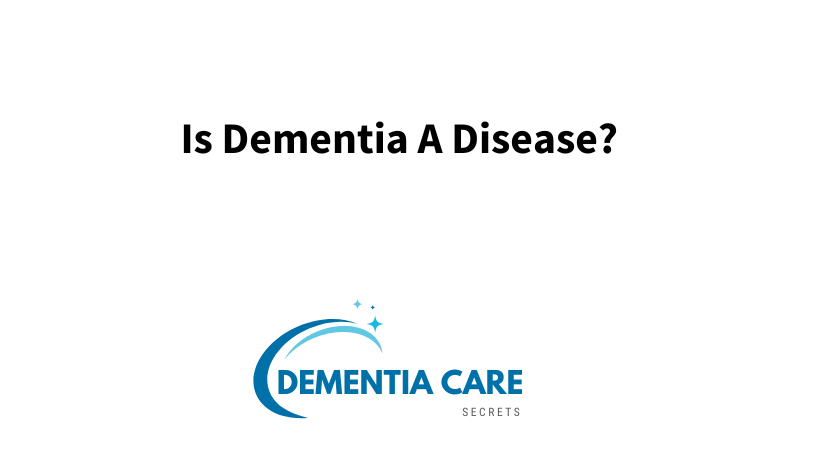Is Dementia A Disease? Discover the Truth

Discover the Truth About Dementia: What You Need to Know
Is dementia a disease? Find out the answer and unravel the mysteries of this condition that affects millions of people worldwide.
Dementia is not just one disease, but a collection of symptoms that can significantly impact memory, thinking, and decision-making abilities. It can make everyday tasks challenging and affect the quality of life.
Delve into the world of dementia as we explore over 100 different types of this condition. The most common type, Alzheimer's disease, has been a cause for concern among the elderly, but let's debunk the myth that dementia is a normal part of aging.
Age is indeed a crucial factor that increases the risk of developing dementia, especially for those aged 65 and older. With a growing aging population, the number of newly diagnosed cases is skyrocketing.
Did you know that your family history can influence your chances of developing dementia? Discover the role genetics play in this condition and how lifestyle changes can potentially delay or prevent its progression.
Race and ethnicity also have a significant impact on dementia risk. Certain ethnic groups, such as African Americans and Hispanics, are more prone to developing this condition. Uncover the reasons behind these disparities.
Here's some good news - you have the power to reduce your risk of dementia. By taking care of your heart health, managing conditions like high blood pressure and high cholesterol, and making lifestyle changes, you can potentially lower your chances of developing dementia.
But what if you've suffered a traumatic brain injury or a head injury? Learn about the link between these incidents and dementia and discover how athletes are affected as they age.
Diagnosing dementia can be complex, but recent advancements have made it easier to identify specific types. We'll explore biomarker tests and other medical examinations that can provide a more accurate diagnosis.
Discover the multitude of conditions and factors that can cause memory problems. From depression and anxiety to thyroid disease and even COVID-19, understanding these potential culprits is key to obtaining an accurate diagnosis.
Get ready for a comprehensive evaluation that may include cognitive and neuropsychological tests, neurological assessments, and brain scans. These tests aim to rule out other conditions and pinpoint the underlying problem.
Uncover the importance of blood and urine tests in identifying physical issues that can affect brain function. These simple tests can provide valuable insights into your overall health.
Join us on this journey as we unravel the mysteries of dementia and empower ourselves with knowledge and understanding. Let's take control of our brain health and live our lives to the fullest.
Diagnosing Dementia
Discover how blood tests can identify physical problems that impact brain function, such as vitamin B-12 deficiency or an underactive thyroid gland. Don't overlook the importance of a urine test, as it can rule out a urinary tract infection, which is a common cause of confusion in older adults. Plus, find out about the different types of memory tests used by healthcare professionals to assess dementia and cognitive changes. Learn about the top three types of dementia - Alzheimer's disease, vascular dementia, and Lewy body dementia - and their distinct symptoms and risk factors.Discover the rare form of dementia Fronto temporal dementia
Alzheimer's Disease the most Common Type of Dementia
Alzheimer’s disease is the most common cause of dementia. It accounts for 60 to 80 percent of cases. A build up proteins cause specific changes in the brain. The main symptom difficulty with short-term memory. For example, a person cant remember what they had for breakfast, while difficulty remembering more distant memories occurs later in the disease. Other symptoms like difficulty with walking or talking or personality changes, come later. Family history is the most significant risk factor. Having a first-degree relative with Alzheimer’s disease increases the risk of you developing it by 10 to 30 percent.
Vascular Dementia
Vascular dementia is the second most common type of dementia. Studies show that 10 percent of dementia cases are linked to strokes or other circulation problems that impact blood flow to the brain. Diabetes, high blood pressure and high cholesterol are also risk factors that contribute to developing vascular dementia. Signs and Symptoms will vary depending on the region and size of the brain affected. Vascular dementia progresses in a stair step-wise fashion. This means symptoms will suddenly get worse as the individual suffers from more strokes or mini-strokes.
Lewy Body Dementia the most misdiagnosed dementia
Lewy body dementia is the third most common type of dementia. It is also the most misdiaganosed type of dementia. While the typical symptom is memory loss, individuals with this form of dementia may have movement or balance problems like stiffness or trembling.
Other signs and symptoms may include daytime sleepiness, confusion or staring spells. They may have difficulty sleeping at night or may experience visual hallucinations (seeing people, objects or shapes that are not actually there).
What is Mixed Dementia?
Mixed dementia is another type of dementia. This occurs when more than one type of dementia is present in the brain at the same time. This may occur in those aged 80 yrs old and older.
For example, a person may have Alzheimer’s disease and vascular dementia. Learn about the complexities of mixed dementia, where multiple types of this condition coexist within the brain. Surprisingly, it may not always be obvious that a person has mixed dementia, as symptoms of one type may overshadow another. The progression of this form of dementia can be faster and more aggressive than with a single type, making understanding and treatment essential.
Discover the Impact of Fronto-Temporal Dementia on Personality and Behavior
Find out how changes in the brain can lead to drastic shifts in a person's character and actions. Fronto-temporal dementia can cause individuals to act inappropriately, potentially making offensive comments and neglecting their responsibilities. Difficulty with language skills may also arise, making communication a challenge.
Exploring the Potential for Reversible Causes of Dementia
Discover the various factors that can mimic the symptoms of dementia but actually have a reversible underlying cause. Medication side effects, brain pressure, vitamin deficiencies, and hormone imbalances can all contribute to cognitive decline. By identifying these reversible causes, healthcare providers can rule them out and focus on appropriate treatment measures.
Unveiling the Treatment Options for Dementia
Learn about the available treatment options for dementia and the ongoing research aimed at developing even more effective solutions. While certain types of dementia, like Alzheimer's, currently have no cure, medication can help manage symptoms such as anxiety and behavioral changes. Prevention strategies, such as regular exercise, healthy eating, and social engagement, can also play a crucial role in reducing the risk of developing chronic diseases associated with dementia.
Take Charge of Your Health with Early Diagnosis and Treatment
If you suspect you or a loved one may be dealing with dementia, don't hesitate to seek a medical evaluation from your primary care physician. Early diagnosis and treatment can have a significant impact on the quality of life and slow the progression of this devastating condition. Don't wait - take control of your health today.
You might also like this article:








